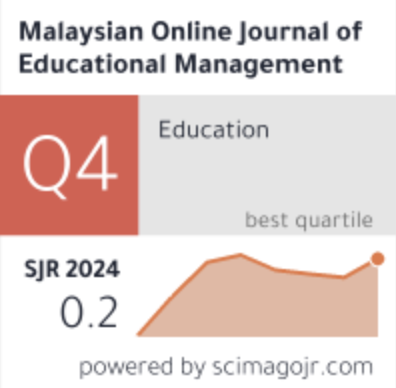DEVELOPMENT OF E-COLLABORATIVE MANAGEMENT MODEL FOR TEACHING AND LEARNING ACTIVITIES: AN ACTION RESEARCH IN MALAYSIA
DOI:
https://doi.org/10.22452/mojem.vol5no2.1Abstract
The present study is using qualitative research method to develop a model for e-collaborative management on teaching and learning contents (TLC) for a private university college. The model operates on up-building and sustaining competitive niche for higher education institutions (HEI). Participatory action research (PAR) method is applied to fifteen participants across different faculties and academic supporting departments. Those participants are lecturers, department heads, deans and academic supporting colleagues. Advocating, adapting, and aligning are the three continuous revolving spiral improvement actions applied to reflect cycles employed to promote e-collaborative management on TLC. Data were obtained through participant observation, in-depth interviews, and document triangulation of data sources. The purpose was to construct, synthesize, develop, and justify the model. The findings shows “cooperative working behaviorâ€, “guidance collaborative processâ€, “substantial reciprocal practice†and “conclusive common goals†as four motivating factors functioning as enablers, facilitators, mechanisms, and drivers respectively to inspire e-collaborative management on TLC process. These four factors consequently “foster collective action practices†and “work toward common objectives†to promote e-collaborative management on TLC. This study advances ideas on how to group the right profession, recruit right partner, catch right timing, and make right setting. The practical implications are the discovery of theoretical, personal, and workplace practical best practices in relation to e-collaborative management on TLC.









